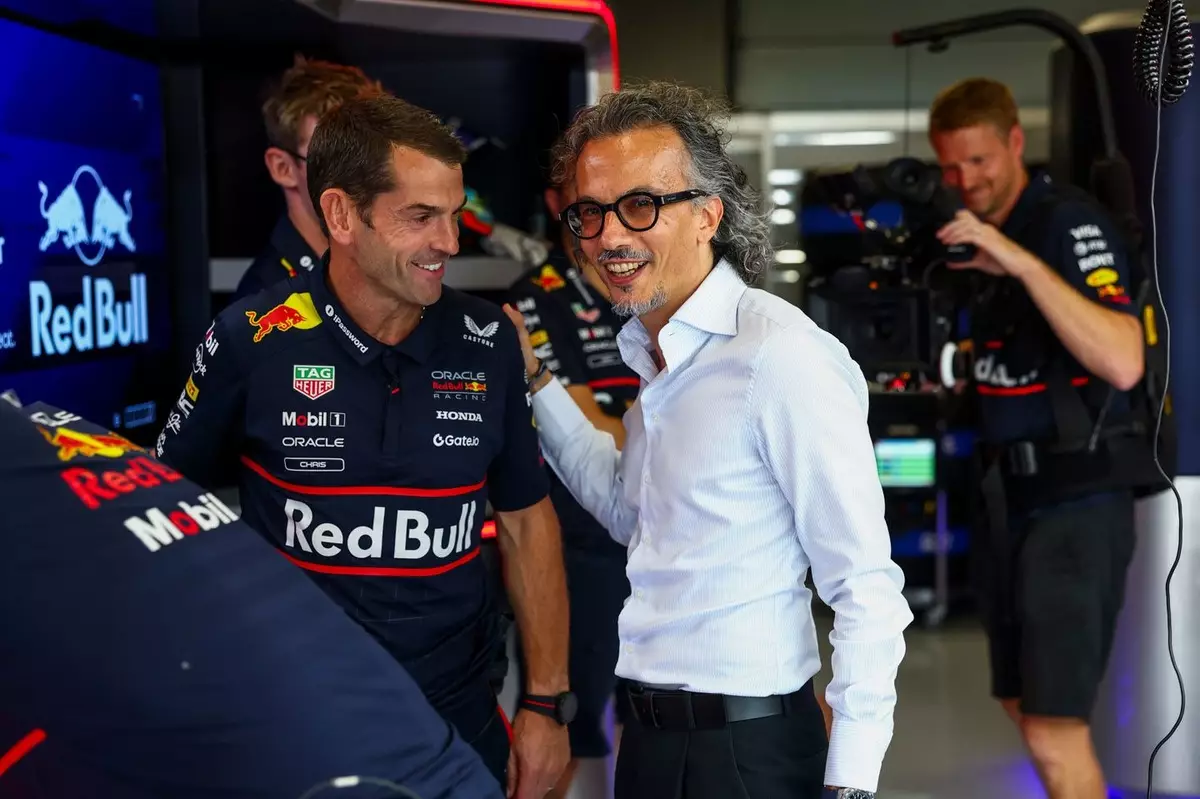Red Bull Racing’s recent strategic move to appoint Laurent Mekies as team principal and CEO signals a pivotal shift in its competitive trajectory. This decision underscores the team’s ambition to reinvent itself amid recent challenges and hints at a profound belief in Mekies’ leadership capabilities. The ousting of Christian Horner, a figure synonymous with Red Bull’s rise to F1 dominance, was inevitable in the context of fluctuating performance and internal restructuring. However, replacing a leader of Horner’s stature with someone like Mekies appears to be a calculated gamble—one that centers on fresh perspectives, strategic agility, and an emphasis on continuity through existing collaborations.
While many might view this transition skeptically, it is an audacious step in redefining the team’s future, especially given the complex landscape of modern Formula 1. Red Bull’s decision reflects a desire to leverage Mekies’ extensive experience in race management, technical insight, and talent for fostering collaboration across teams—attributes that could prove invaluable in the high-pressure, constantly evolving environment of F1.
The Significance of Experience and Personal Skill in Leadership
Mekies’ appointment is notable not only for his professional credentials but also for his personal qualities, which have evidently resonated within the racing community. His background working alongside Alan Permane at Racing Bulls offers insight into his leadership style—one rooted in technical expertise combined with strong interpersonal skills. Permane’s glowing praise emphasizes Mekies’ ability to relate to personnel on a human level, a trait increasingly recognized as essential in modern motorsport leadership.
Betting on a driver’s personality and ability to unite a team underpins Red Bull’s strategy for sustained success. In an environment where engineering excellence only takes teams so far, leadership that commands respect, instills confidence, and nurtures talent becomes a decisive factor. Mekies’ reputation as a “people person” complements his racing acumen, positioning him uniquely to steer Red Bull through challenging times and to inspire a culture of resilience and innovation.
Strategic Continuity and Future Opportunities
One of the most reassuring aspects of this leadership shift is the apparent continuity in key strategic initiatives. Mekies’ history at Racing Bulls, particularly his work laying the groundwork for the upcoming 2026 power unit regulations and the internal development of in-house engines, suggests a smooth integration into Red Bull’s long-term plans. The collaboration between racing and technical divisions is critical, especially as the team commits resources to develop its own powertrains—a move that could redefine competitive dynamics in the years to come.
Permane’s insight into the relationship between Mekies and Horner highlights a crucial point: despite the change in leadership, the strong synergy between Racing Bulls and Red Bull Racing is unlikely to be disrupted. Such cohesion is vital given the intricacies of F1 regulations and the need for synchronized development efforts. The ability to operate seamlessly across different facilities—Faenza and Milton Keynes—demonstrates a strategic understanding of multinational operational management, an underrated component of team success.
The Challenge of Filling Big Shoes and Maintaining Momentum
While Mekies’ credentials instill confidence, the scale of the challenge ahead cannot be understated. Christian Horner’s legacy is monumental—guiding Red Bull from a middling team to championship-winning dominance. Filling his shoes demands not only technical acumen but also the charisma to unify a diverse array of talents, maintain the team’s competitive edge, and adapt to the evolving regulatory landscape.
Furthermore, the broader context of Max Verstappen’s uncertain future looms as a potential disruptor. Red Bull must balance nurturing talent, pushing technological boundaries, and maintaining a winning mentality—all under new leadership. In this light, Mekies’ diverse background as both a driver and a strategist could be an asset, providing him with multidimensional insight that many of his predecessors lacked.
In essence, Red Bull’s decision to entrust Laurent Mekies with its leadership is a testament to the team’s resilience and strategic boldness. It reflects a recognition that sustained excellence in Formula 1 requires innovation, effective people management, and a willingness to embrace change. Whether this gamble pays off remains to be seen, but the early signs suggest that Red Bull is positioning itself for a new chapter—one where experience, leadership, and vision converge to restore its competitive supremacy and beyond.


Leave a Reply